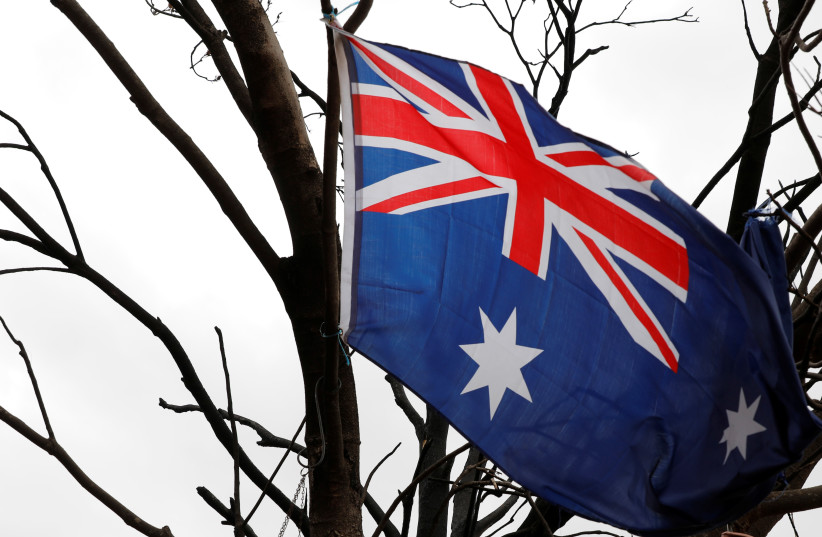Few if any of us reveal our true selves. We are reluctant to share our fears and flaws with others, and certainly those raised in households in which there are no physical demonstrations of affection and are later trapped in loveless and sometimes cruel marriages tend to put on a happy face at social gatherings, where only the most discerning eye can detect that something is amiss.
Simonne Abadee grew up in a home in which her father belittled her mother, and there was never any evidence to suggest that they cared for each other. At best, they tolerated each other. They were simply two Holocaust survivors from Poland who married each other and set out for a new life in Melbourne, Australia.
As a child, and subsequently for much of her adult life, Abadee felt unloved, unappreciated, inferior, and as someone who didn’t belong. She had severe learning problems and was slow in learning to speak. When she was seven, she had a serious accident that affected her physical coordination.
She eventually overcame these difficulties, was active in youth groups, proved that she had leadership and organizational skills but was never really comfortable in her skin. She was always like an outsider looking in; and to top it off, her mother refused to recognize her achievements and always treated her as incompetent and destined to be an eternal failure.
In 1975, when Abadee was 20, she came to Israel on a youth leadership program, fell in love with the country, and wanted to stay. Her parents came to visit her in Jerusalem, and her mother was adamant that her daughter would not be able to take care of herself alone in Israel.

Against her better judgment, Abadee returned to Australia, decided to become a primary school teacher, was accepted for the course, and went on to earn a series of degrees and to teach children at different levels. She was particularly interested in teaching children with learning problems similar to those which she had experienced as a child.
In the interim, she had a couple of relationships, and even got engaged at one stage. The groom canceled, then changed his mind again, then canceled again. What finally transpired was that he was a closet gay, and he thought that he could keep his secret if he got married. Abadee also had a close relationship with another closeted gay man.
The man she eventually married was not gay, but he was abusive – not physically but emotionally. He humiliated, criticized, and ridiculed her. He could not understand her devotion to her students. He never complimented her on anything, and he was totally in charge of the family finances, which he refused to discuss with her. Abadee gave birth to Olivia, a child with impaired vision, for whom she made enormous sacrifices. When her daughter was a teenager, like most teenagers she turned against her mother. It took a while for Abadee to realize that this attitude was not merely a teen phase but something that Olivia had picked up from her father.
Because of what she had witnessed in her parents’ home, Abadee was under the erroneous impression that this was what marriage was about.
During a visit to Israel as part of a WIZO delegation, she opened up to a couple of people and said that she wanted to get out of this 28-year-situation and to be her own person.
A life story: Catharsis after years of repressing her emotions
Her book Finding My Place is more or less the story of her life. It is obviously a form of catharsis after years of repressing her emotions. It takes tremendous courage for someone who feels inadequate and a social outcast to be so candid.
However, to put her newfound ability to express her feelings into a book, she needed a really good editor. In the book, there is far too much repetition, and too much detail about her career.
While all this is very important to the writer, it is less important to the reader.
And yet, it is a story that had to be told because the case of Simonne Abadee is not an isolated one.
Thousands of women from all walks of life are living in similar circumstances, degraded by their husbands, reviled by their children, though helped to some degree by their friends.
But a woman who has lost all sense of self-worth is often afraid to opt out of a marriage, no matter how badly she is treated.
Simonne Abadee proves that it can be done, and once the decision is made and acted upon, a woman can build a whole new positive life for herself.
Abadee, whose married life was spent in Sydney, after leaving the marital home, became a volunteer with various organizations, became more interested in her Jewish identity, took another trip to Israel, and enrolled in a course at Pardes. She then returned to Sydney to make arrangements for her aliyah. She has been living in Jerusalem since August 2016.
She has a wide circle of friends, she volunteers, she hosts Friday night dinners, and she no longer feels out of place.
At the start of the book, she writes: “I’ve been alone in the world since my earliest days. I’ve never been orphaned or abandoned or poor or hungry as a child. I spoke a language everyone understood. Yet I was always alien, a visitor hovering on the outside.” At the conclusion of the book, she writes: “I’m whole, I’m strong, I belong. I’ve found my place.”
The book was launched in Australia on March 15, with the proceeds of sales going to WIZO NSW. ■
Finding My Place
By Simonne Abadee
Self-published
No price stated